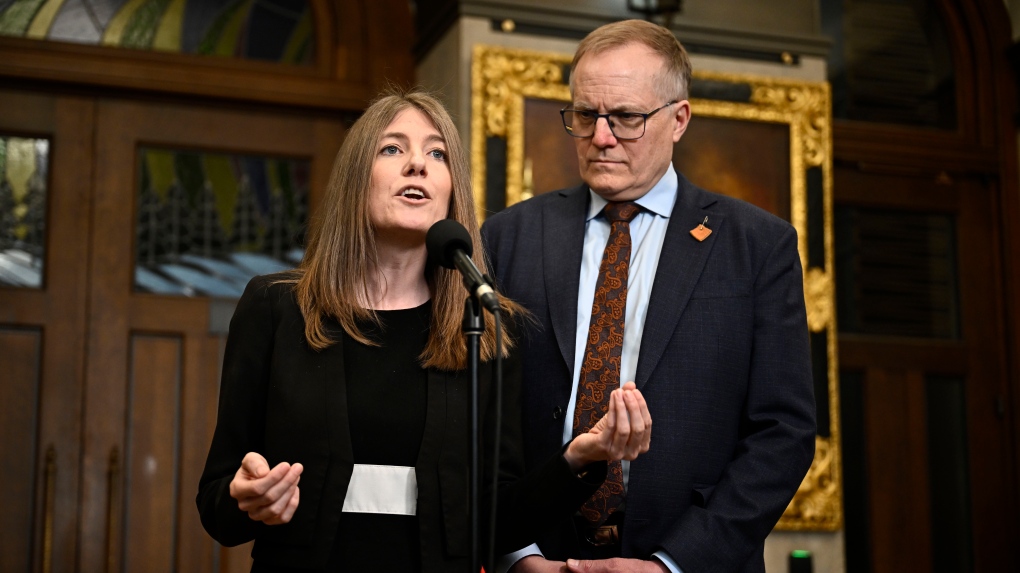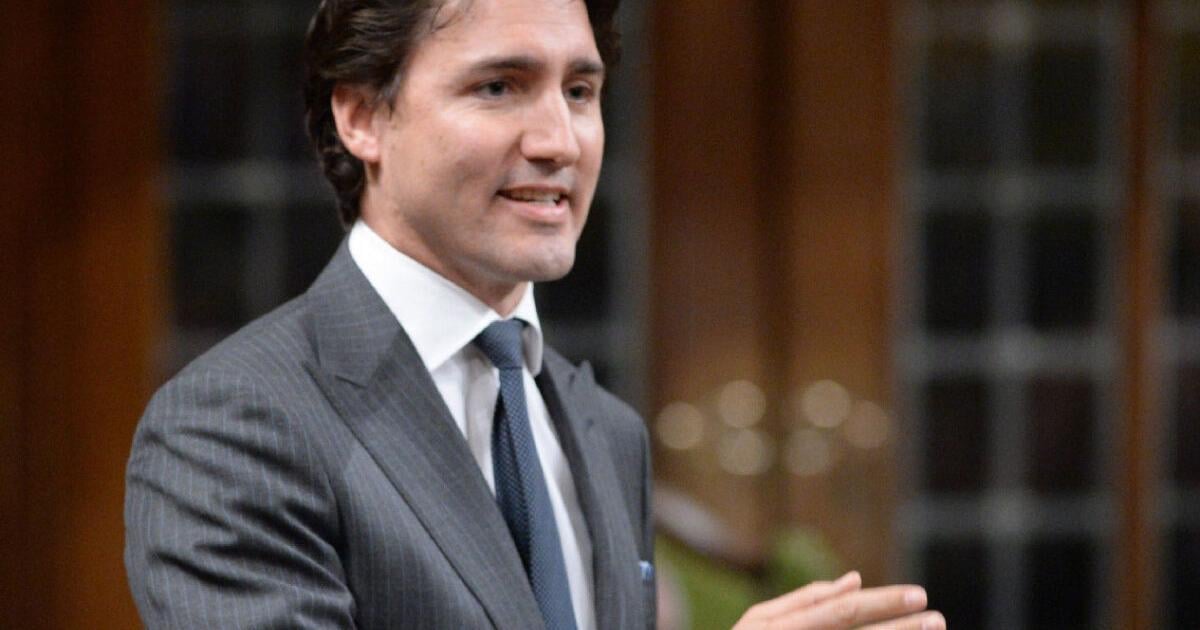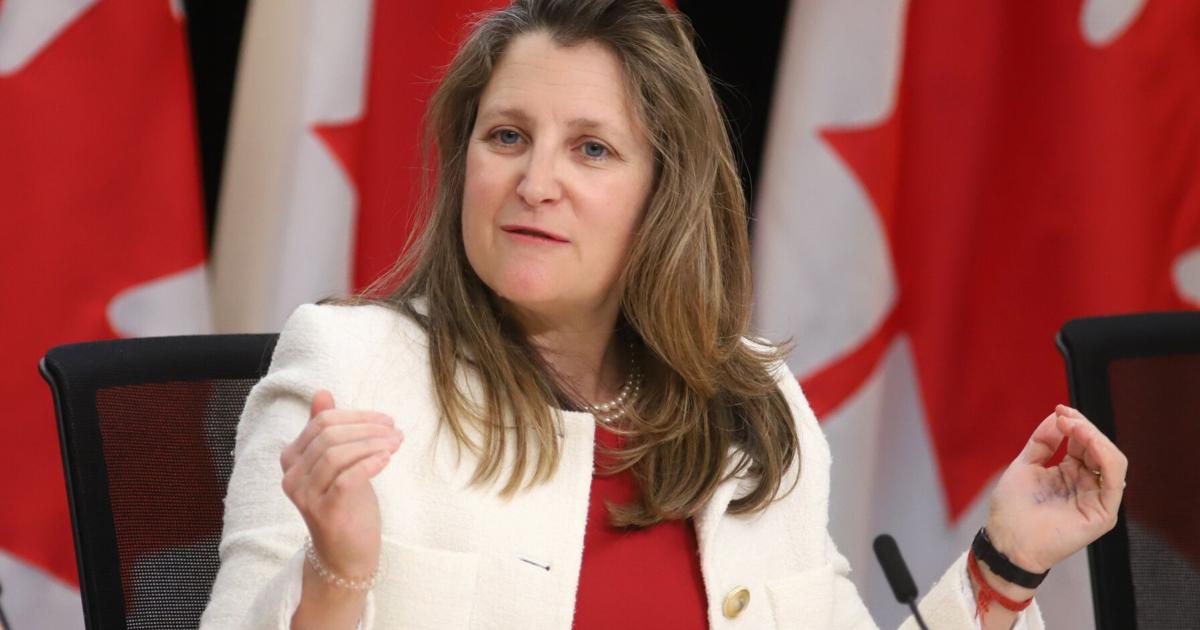afransen
Senior Member
Real GDP and real GDP per capita are very different things in Canada.LOL. The fun of choosing your starting and ending points to manufacture a narrative. Very legacy media of the Economist.
View attachment 554905
Real GDP and real GDP per capita are very different things in Canada.LOL. The fun of choosing your starting and ending points to manufacture a narrative. Very legacy media of the Economist.
View attachment 554905
Not for the large majority. What you really need to accurately make claims in these circumstances is the equivalent to "same-store sales" used in retail, which I don't know if it exists out there, though it sounds difficult to obtain. But you can easily have GPD/capita rising for the majority while dragged overall down by new arrivals. That means there isn't the greatest economic catastrophe in history as described.Real GDP and real GDP per capita are very different things in Canada.
Yes, I think this is to some extent valid. We have added a lot of residents who are diluting the GDP per capita of the general population coming as students and being underemployed as gig workers etc. I don't think this is enough to explain the underperformance in Canada since ~2019.Not for the large majority. What you really need to accurately make claims in these circumstances is the equivalent to "same-store sales" used in retail, which I don't know if it exists out there, though it sounds difficult to obtain. But you can easily have GPD/capita rising for the majority while dragged overall down by new arrivals. That means there isn't the greatest economic catastrophe in history as described.
Quebec premier threatens 'referendum' on immigration if Trudeau fails to deliver
The Canadian Press
Updated April 9, 2024 5:20 p.m. EDT
Published April 9, 2024 4:09 p.m. EDT
Quebec Premier François Legault on Tuesday ratcheted up pressure on the federal government to reduce the number of temporary immigrants in the province, threatening to hold a "referendum" on the issue.
Legault told reporters that launching a plebiscite isn't in his government's short-term plans, but he suggested that could change if Prime Minister Justin Trudeau doesn't deliver on Quebec's immigration demands.
"Do we hold a referendum on this eventually? Do we do it more broadly, on other subjects? It will depend on the results of the discussions," Legault said at the legislature.
During a meeting between the two leaders in March, Trudeau rejected Legault's call for the Quebec government to have full powers over who can immigrate to the province. But Legault said the prime minister showed a significant amount of "openness" on other matters related to immigration and that the two would meet again by June 30.
"Don't forget, Mr. Trudeau promised me a new meeting by June 30, so I expect results," Legault said Tuesday.
The premier said the 560,000 temporary immigrants in Quebec — a number he said includes asylum seekers, temporary foreign workers and international students — are straining social services and putting the French language at risk. And he says the vast majority of Quebecers agree with him.
"What I want to tell Mr. Trudeau is that the majority of Quebecers think that 560,000 temporary immigrants, it's too much," Legault said.
The immigration debate has been long-standing between the two governments. Earlier this year, the premier wrote to Trudeau about the influx of asylum seekers entering Quebec. In recent years, the province has welcomed a disproportionate share, including more than 65,000 of the 144,000 would-be refugees who came to Canada last year.
Quebec has demanded Ottawa reimburse $1 billion — the amount the province says it has cost to care for asylum seekers over the last three years. The two governments agreed to create a working group to study Quebec's demands.
Legault said Quebec's leverage in negotiations is to get the "support" of the population, adding that whether he will trigger a referendum on the issue depends on whether Trudeau gives the province more powers over the immigration file. Legault did not give details about the potential questions Quebecers would be asked to vote on.
Quebec already controls the number of economic immigrants to the province, but it shares responsibility with Ottawa over refugees, newcomers who arrive through the family reunification stream and temporary foreign workers.
After the mid-March meeting, Legault said the prime minister was open to giving Quebec more power, including by requiring temporary foreign workers to be approved by the province before they can move there. If Quebec can pre-approve foreign workers then it can ensure they speak French and their numbers can be controlled, Legault has said, describing pre-approvals as a sort of "veto power."



Justin Trudeau: How to fix the broken temporary foreign worker program
The Liberal leader says the program must be scaled back and refocused on its original purpose: to fill jobs on a limited basis when no Canadian workers can be found.
May 5, 2014
Throughout our history, Canada’s immigration policy has brought people here who had a pathway to citizenship. They were — and are — nation builders. It has been supported by political parties of all stripes, and promoted by successive governments over generations.
With their mismanagement of the Temporary Foreign Worker Program, the Conservatives have done serious damage to that commitment.
Abuse is not rare. It is far too common, and it must end immediately. Here is how to do it.
First, the Temporary Foreign Worker Program needs to be scaled back dramatically over time, and refocused on its original purpose: to fill jobs on a limited basis when no Canadian workers can be found.
Second, Canada needs to re-commit itself to bringing permanent immigrants here who have a path to citizenship. This would return us back to first principles and the purpose of immigration: nation building.
Third, we must also create real transparency and accountability in the program. This should begin with a full review of the program by the Auditor General. We must tighten the foreign worker approvals process, through the disclosure of applications and approvals of temporary foreign workers. This can be facilitated with the public disclosure of information concerning what jobs are being offered to temporary foreign workers and in what communities.
Fourth, we must require that employers applying to the program have clearly attempted to fill job vacancies with Canadian workers, particularly young Canadians whose unemployment rate is nearly twice the national average. We require Canadians who are collecting EI benefits to prove they are looking for work. It’s only fair that we require employers looking to benefit from the Temporary Foreign Worker Program to prove they really need it.
Finally, the government should tighten the Labour Market Opinion approval process to ensure that only businesses with legitimate needs are able to access the program.

^ Great. They are going to allow young people to take on more debt so they can bid up housing. They really shouldn't be surprised when they lose in 2025, if they think this is acceptable housing policy.

The LPC is helping young people "win" bidding wars against future condo speculators, so that developers and existing speculators win massive gains.I just don't see how these policies are of any use in Toronto and Vancouver. As if these minor changes can make or break it lol.

Rolling back OAS to 65 is basically taking up all fiscal room in the budget and accounts for 84% of the deficit. And it's growing faster as a liability than any other priority be it child benefits, defence spending, infrastructure spending, etc. Basically everything we do now is to fund OAS.

The Globe & Mail: Protect OAS by eliminating outdated tax shelters for retirees
The sustainability of OAS is under threat as our population ages. Ottawa should review outdated tax shelters for retirees that drain billions in revenue and could otherwise help cover rising OAS costs.www.gensqueeze.ca
After reading this, I'm probably going to vote for any party that promises to roll back OAS. This is absolutely insane war on the young.
Rolling back OAS to 65 is basically taking up all fiscal room in the budget and accounts for 84% of the deficit. And it's growing faster as a liability than any other priority be it child benefits, defence spending, infrastructure spending, etc. Basically everything we do now is to fund OAS.

The Globe & Mail: Protect OAS by eliminating outdated tax shelters for retirees
The sustainability of OAS is under threat as our population ages. Ottawa should review outdated tax shelters for retirees that drain billions in revenue and could otherwise help cover rising OAS costs.www.gensqueeze.ca
After reading this, I'm probably going to vote for any party that promises to roll back OAS. This is absolutely insane war on the young.




